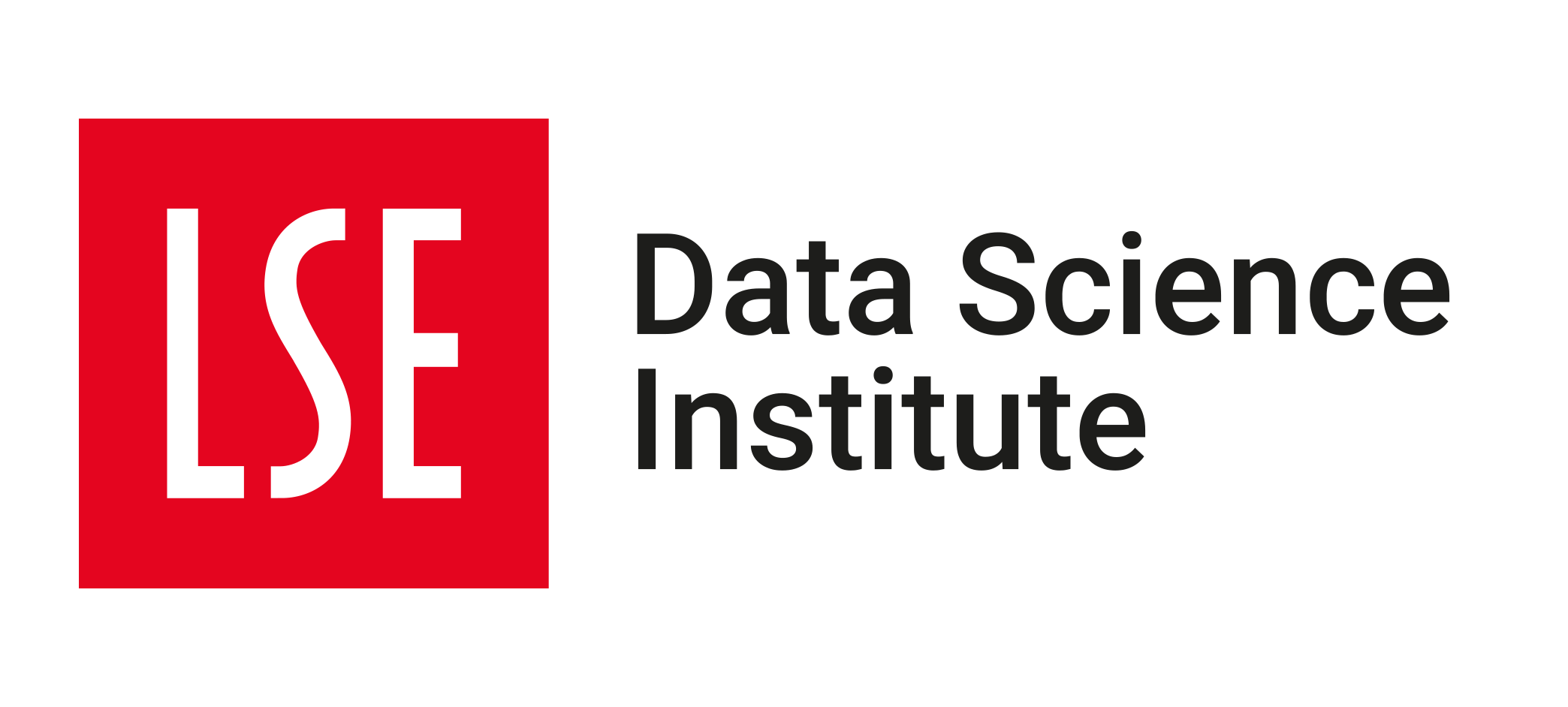LSE DS101 - Fundamentals of Data Science
🎯 Focus: theoretical concepts of data science
📂 How: reflections through reading and writing
📑 Course Content
This course, which is built around real-world case studies, is designed to be a gentle introduction to data science/AI and its practice: how it works, how it can produce insights from social, political, and economic data and where it can encounter issues in this process.
It is NOT designed to be a programming course (students interested in programming are advised to explore courses such as DS205, DS105A, DS105W, ST101, Digital Skills Lab workshops or self-paced pre-sessional courses in R or Python). By combining case studies in applications with the study of fundamental concepts of data science/AI, it aims for a coverage of contemporary issues and advances in data science and AI that is both pedagogic but accessible, as well as fundamentally applied and practical. It combines two main perspectives: computational thinking and real-world relevance.
The topics covered include:
The fundamentals of the data science approach, with an emphasis on social scientific analysis and the study of the social, political, and economic worlds;
An introduction to the forms of data can take and a discussion of the challenges of working with data,
The basis of computational thinking and algorithmic design;
An introduction to the logic of statistical inference including probability and probability distributions and how they form the basis for statistical decision-making;
A survey of the basic techniques of statistical learning and machine learning, including a comparison of different approaches, including supervised and unsupervised methods;
How to integrate the insights from data analytics into knowledge generation and decision-making;
Examples of methods for working with unstructured data, such as text mining.
An introduction to the basic principles of generative AI and large language models
A discussion of the ethical issues linked to AI algorithms and ways to address them
Our applications are drawn from the social science fields represented at LSE but also from private and public sector non-academic examples.
Select Academic Year/Term:
Archive:
